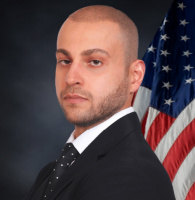Woodridge White Collar Crime Lawyer, Illinois
Sponsored Law Firm
-
 x
x

Click For More Info:
-
Law Offices of Darryl A. Goldberg
33 N Dearborn St Suite 1830 Chicago, IL 60602» view mapCriminal Defense Law Because Experience Matters
When a trial is in your future, make sure Chicago criminal defense attorney Darryl Goldberg is at your side. Defending your rights is the most important thing right now.
800-901-8970
Donald John Ramsell
✓ VERIFIEDCriminal, Traffic, DUI-DWI, White Collar Crime, Felony
When Everyone Else Is On Your Back, We Are On Your Side
Donald J. Ramsell's interests include golf, Corvettes, the Cubs, travel, and winning cases. Donald J. Ramsell is the only Illinois DUI defense att... (more)
Khaled Issa
Criminal, DUI-DWI, Felony, White Collar Crime, Personal Injury
Orland Park, Illinois Criminal Defense Attorney
Khaled Issa is a well-versed trial attorney with more than 10 years of legal experience. Knowledgeable in many areas of law, Attorney Issa concentrate... (more)
Daniel M. Purdom
Litigation, Employment Discrimination, White Collar Crime, Criminal
Status: In Good Standing
Michael Francis McMahon
Criminal, DUI-DWI, Misdemeanor, White Collar Crime, Traffic
Status: In Good Standing Licensed: 31 Years
FREE CONSULTATION
CONTACTClarissa Myers
Criminal, DUI-DWI, Divorce & Family Law, Misdemeanor, White Collar Crime
Status: In Good Standing Licensed: 18 Years
FREE CONSULTATION
CONTACTJohn Louis Fioti
Traffic, Criminal, Corporate, Administrative Law, White Collar Crime
Status: In Good Standing Licensed: 33 Years
 Darryl Goldberg Chicago, IL
Darryl Goldberg Chicago, IL Practice AreasExpertise
Practice AreasExpertise


